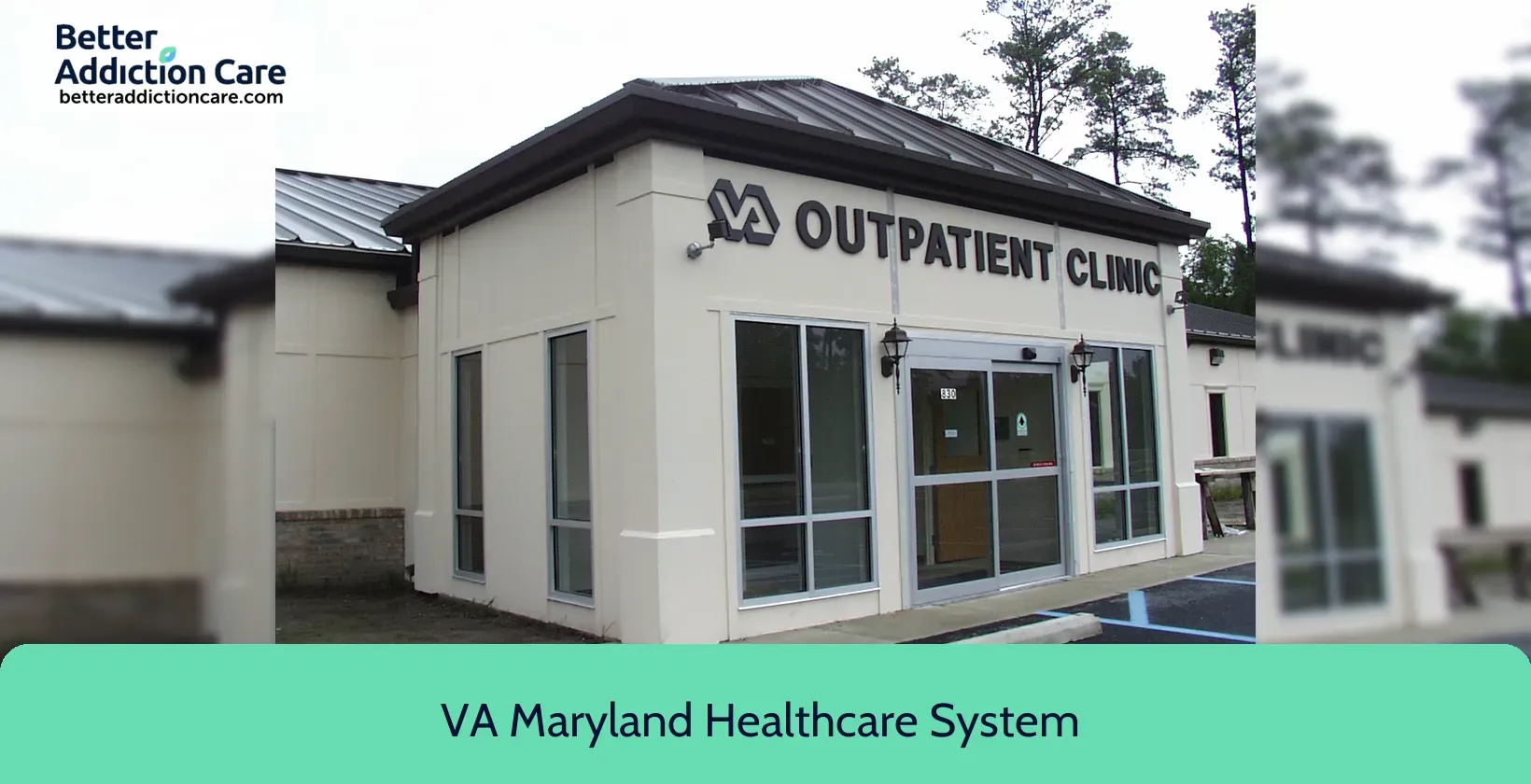VA Maryland Healthcare System - Cambridge VA Outpatient Clinic
Overview
VA Maryland Healthcare System - Cambridge VA Outpatient Clinic is a mental health treatment center for people seeking treatment near Dorchester County. As part of their treatment modalities for recovery, VA Maryland Healthcare System - Cambridge VA Outpatient Clinic provides couples/family therapy, cognitive behavioral therapy, and dialectical behavior therapy during treatment. VA Maryland Healthcare System - Cambridge VA Outpatient Clinic is located in Cambridge, Maryland, accepting cash or self-payment for treatment.
VA Maryland Healthcare System - Cambridge VA Outpatient Clinic at a Glance
Payment Options
- Cash or self-payment
- Medicaid
- Medicare
- Private health insurance
- Federal military insurance (e.g., TRICARE)
Assessments
- Screening for tobacco use
- Comprehensive mental health assessment
- Comprehensive substance use assessment
Age Groups
- Seniors or older adults
- Young adults
- Adults
- Seniors
Ancillary Services
- Case management service
- Chronic disease/illness management
- Diet and exercise counseling
- Family psychoeducation
- Illness management and recovery
Highlights About VA Maryland Healthcare System - Cambridge VA Outpatient Clinic
6.88/10
With an overall rating of 6.88/10, this facility has following balanced range of services. Alcohol Rehabilitation: 8.00/10, Drug Rehab and Detox: 6.00/10, Insurance and Payments: 6.80/10, Treatment Options: 6.73/10.-
Alcohol Rehabilitation 8.00
-
Insurance and Payments 6.80
-
Treatment Options 6.73
-
Drug Rehab and Detox 6.00
Accreditations
The Joint Commission:

The Joint Commission accreditation for addiction and behavioral health signifies that a facility has met rigorous standards in patient care, treatment, and safety. This recognition assures patients and professionals of the facility's commitment to providing high-quality, evidence-based care in the fields of addiction and behavioral health, fostering trust and confidence in their services.
Effective date: 12/09/2017
Registration: 254126
Treatment At VA Maryland Healthcare System - Cambridge VA Outpatient Clinic
Treatment Conditions
- Alcoholism
- Mental health treatment
- Substance use treatment
- Co-occurring Disorders
Care Levels
- Outpatient
Treatment Modalities
- Couples/family therapy
- Cognitive behavioral therapy
- Dialectical behavior therapy
- Integrated Mental and Substance Use Disorder treatment
- Telemedicine/telehealth therapy
Ancillary Services
Languages
- Sign language services for the deaf and hard of hearing
Additional Services
- Pharmacotherapies administered during treatment
- Mentoring/peer support
- Metabolic syndrome monitoring
Special Programs
- Clients with co-occurring mental and substance use disorders
- Veterans
- Active duty military
- Members of military families
- Clients with HIV or AIDS
Contact Information
Read our Most Recent Article About Drug Addiction
DISCLAIMER: The facility name, logo and brand are the property and registered trademarks of VA Maryland Healthcare System - Cambridge VA Outpatient Clinic, and are being used for identification and informational purposes only. Use of these names, logos and brands shall not imply endorsement. BetterAddictionCare.com is not affiliated with or sponsored by VA Maryland Healthcare System - Cambridge VA Outpatient Clinic.









